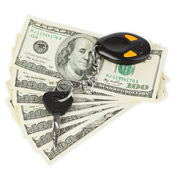
I can’t think of anyone who looks forward to paying for car insurance, in particular when the price is too high.
Drivers have so many auto insurance companies to insure vehicles with, and though it is a good thing to be able to choose, having more car insurance companies makes it harder to adequately compare rates.
Finding the best rates is easy if you know what you’re doing. If you have car insurance now, you will be able to lower your premiums substantially using these tips. Although drivers do need to understand the way companies price online insurance and take advantage of how the system works.
Car Insurance Comparison Rates
The are a couple different ways to get quotes and find the best price. The best method to find competitive Toyota Avalon insurance rates involves getting comparison quotes online. This can be accomplished in several different ways.
- Probably the best way to find low rates is to use a rate comparison form click here to open form in new window. This type of form keeps you from doing repetitive form entry to each individual car insurance company. Just one form compares rates .
- A more difficult way to compare rate quotes consists of going to each company’s website to complete their respective quote request forms. For example, let’s assume you want to compare rates from Allstate, Farmers and Progressive. To get rate quotes you would need to visit each site and enter your information, which is why the first method is quicker.
For a list of links to insurance companies in your area, click here.
It’s up to you how you get prices quotes, just make absolute certain that you use apples-to-apples deductibles and coverage limits on every quote you get. If you compare differing limits it will be impossible to make an equal comparison. Just a small difference in coverage limits may result in large price differences. Just keep in mind that getting more free quotes helps locate lower pricing.
The car insurance bait and switch
Companies like Progressive, Allstate and GEICO regularly use ads on television and other media. All the ads have a common claim of big savings if you move to their company. How can each company say the same thing? It’s all in the numbers.
All the different companies have a preferred profile for the type of driver they prefer to insure. A good example of a desirable insured might be profiled as between the ages of 30 and 50, a clean driving record, and drives less than 10,000 miles a year. Any new insured who fits that profile is entitled to the best price and therefore will cut their rates substantially.
Potential insureds who don’t qualify for this ideal profile will be charged more money and this can result in the customer not buying. The ads say “drivers who switch” not “everyone that quotes” save that kind of money. That’s why insurance companies can confidently make those claims. That is why drivers should get as many comparisons as possible. It’s not possible to predict the company that will provide you with the cheapest rates.
Companies offer discounts so take them!
Companies offering auto insurance do not list all available discounts very clearly, so we took the time to find some of the more common and the harder-to-find car insurance savings.
- Passive Restraints and Air Bags – Cars that have air bags can get savings of 20% or more.
- Pay Upfront and Save – If you pay your bill all at once instead of monthly or quarterly installments you may reduce your total bill.
- Government Employees – Being employed by or retired from a federal job can save as much as 8% for Avalon insurance with select insurance companies.
- Good Student Discount – Getting good grades can save 20 to 25%. This discount can apply up to age 25.
- Student in College – Youth drivers who are attending college without a vehicle on campus can be insured at a reduced rate.
- Drive Less and Save – Fewer annual miles on your Toyota could be rewarded with better rates on cars that stay parked.
- Anti-lock Brake System – Vehicles with anti-lock braking systems can reduce accidents and qualify for as much as a 10% discount.
- Lower Rates for Military – Having a family member in the military could be rewarded with lower premiums.
A little note about advertised discounts, some credits don’t apply to the entire cost. Some only apply to the cost of specific coverages such as comprehensive or collision. So even though they make it sound like adding up those discounts means a free policy, you’re out of luck.
Specifics of your car insurance policy
Knowing the specifics of car insurance helps when choosing which coverages you need for your vehicles. Car insurance terms can be ambiguous and even agents have difficulty translating policy wording. Listed below are typical coverages found on the average car insurance policy.
Liability coverages – This coverage provides protection from damage or injury you incur to other people or property in an accident. It protects you from claims by other people, and doesn’t cover your own vehicle damage or injuries.
It consists of three limits, bodily injury for each person injured, bodily injury for the entire accident and a property damage limit. You might see values of 25/50/25 that translate to $25,000 in coverage for each person’s injuries, a limit of $50,000 in injury protection per accident, and $25,000 of coverage for damaged propery.
Liability coverage pays for claims like attorney fees, loss of income, repair costs for stationary objects and emergency aid. The amount of liability coverage you purchase is a personal decision, but buy as high a limit as you can afford.
Comprehensive coverage (or Other than Collision) – This covers damage from a wide range of events other than collision. You first must pay your deductible then your comprehensive coverage will pay.
Comprehensive coverage pays for things such as fire damage, hail damage, damage from flooding and hitting a deer. The maximum amount you can receive from a comprehensive claim is the ACV or actual cash value, so if your deductible is as high as the vehicle’s value consider removing comprehensive coverage.
Uninsured Motorist or Underinsured Motorist insurance – This coverage protects you and your vehicle from other drivers when they do not carry enough liability coverage. Covered claims include injuries to you and your family as well as damage to your Toyota Avalon.
Due to the fact that many drivers have only the minimum liability required by law, it doesn’t take a major accident to exceed their coverage limits. That’s why carrying high Uninsured/Underinsured Motorist coverage is important protection for you and your family.
Collision coverage – Collision coverage covers damage to your Avalon from colliding with an object or car. You will need to pay your deductible then your collision coverage will kick in.
Collision coverage protects against claims such as sustaining damage from a pot hole, scraping a guard rail and rolling your car. Collision coverage makes up a good portion of your premium, so consider dropping it from vehicles that are 8 years or older. Drivers also have the option to bump up the deductible to bring the cost down.
Insurance for medical payments – Medical payments and Personal Injury Protection insurance kick in for expenses like prosthetic devices, EMT expenses, dental work and chiropractic care. They are used in conjunction with a health insurance policy or if there is no health insurance coverage. They cover all vehicle occupants in addition to any family member struck as a pedestrian. PIP coverage is not an option in every state but it provides additional coverages not offered by medical payments coverage
Cheaper insurance is a realistic goal
As you restructure your insurance plan, you should never reduce needed coverages to save money. There are a lot of situations where an insured cut uninsured motorist or liability limits only to discover later they didn’t purchase enough coverage. The proper strategy is to find the BEST coverage at a price you can afford, not the least amount of coverage.
You just learned a lot of tips how to compare Toyota Avalon insurance prices online. The most important thing to understand is the more providers you compare, the more likely it is that you will get a better rate. You may even discover the best prices are with the smaller companies. Smaller companies can often insure niche markets at a lower cost than their larger competitors like Allstate or State Farm.


